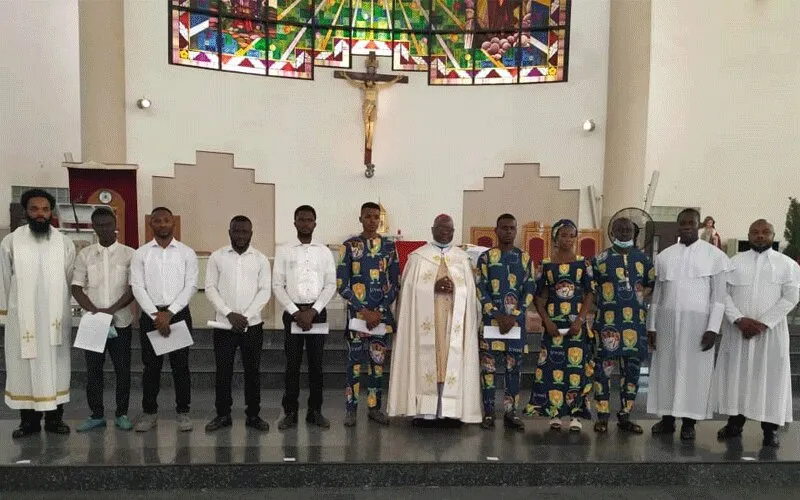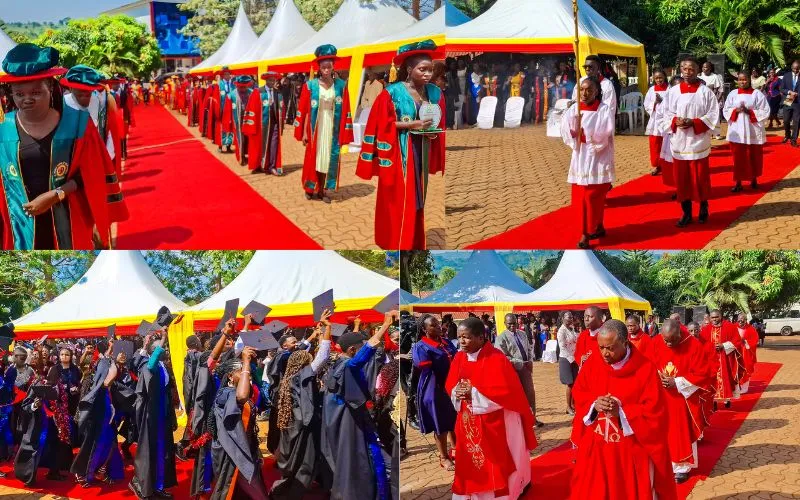“When our national team wins an international football match, we all want to identify ourselves as Nigerians. When the position of Director-General of the World Trade Organization (WTO) becomes available, we want a Nigerian to occupy it; we are proud that a Nobel Peace Prize winner is a Nigerian,” Archbishop Kaigama remarked.
He however regretted that “when there is imperative to transcend tribal chauvinism, religious short-sightedness and political abracadabra for national interests, our education and exposure seem to fail us.”
Making reference to the recent nationwide, youth-led protests against police brutality that were “disrupted by unscrupulous elements,” the Archbishop posed, “Do we have the capacity as Nigerians to begin something positive that cannot be hijacked or crippled by those who suffer a kind of social or political paranoia?”

The 62-year-old Archbishop continued to pose, “Is it possible to avoid introducing tribal sentiments, religious factors and the north/south dichotomy as we pursue the common good of this nation? Is it possible not to worry about who may feel offended and to engage in non-violent struggle for positive change beyond narrow boundaries or prejudices?”
“When good initiatives are introduced by whoever or whatever group in the Church, we should not cripple them because of ethnic or geo-political reasons,” Archbishop Kaigama told the youth who were gathered at Our Lady Queen of Nigeria Pro-Cathedral of Abuja Archdiocese, urging them not to “import” the mentality of ethnic prejudices into the Church.
He explained, “Our Catholic Church is a family that is universal and of apostolic origin. While we should struggle individually for daily bread and a better life, we must realize that what is of great importance is our unity, progress, the salvation of souls and how to qualify as citizens of heaven.”
In his address to the young people under his pastoral care, the Nigerian Archbishop bemoaned pervasive corruption in Africa’s most populous nation saying, “Whether as youths or elders, we are all in one way or another guilty of corrupt practices and we should seek purification and forgiveness from God.”
Nigerians spend “time conjugating the verb ‘to bribe’: I bribe, you bribe, he bribes, she bribes, we bribe, you (plural) bribe, they bribe,” Archbishop Kaigama observed, adding, “We seem to have developed a culture where it is normal to bribe or to know an influential person in order to be employed, promoted or even to have budgets approved.”












